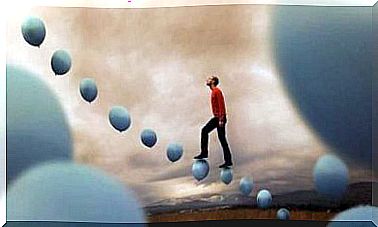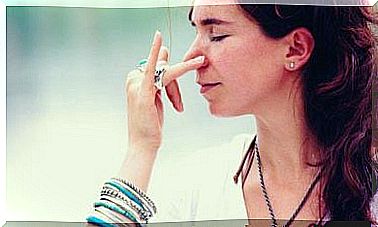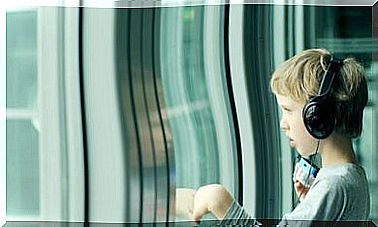Situational Awareness, A Strategy For Better Resilience

Situational awareness is defined as an exceptional capacity for survival, improvement and resilience. It consists of visualizing a mind map to understand where you are, what surrounds you and what challenges lie ahead. Above all, this strategy lets you know exactly what’s going on around you, so you can come up with a coping strategy for better resilience.
This type of ability is often associated with a superhero or scout. But while you may find it remarkable, you can also develop this striking set of cognitive abilities. Psychology recognizes that humans are capable of amazing processes. Furthermore, you can train these skills to make smarter decisions and cope with times of crisis better.
In addition, “awakening” situational awareness is a very valuable strategy in the time we live in. In these complex times with many changes and challenges on the horizon, the brain needs to know how to act when faced with uncertainty and dilemmas.

Situational awareness, what is it and how can you develop it?
When dealing with stressful situations, something remarkable happens. Coping with stress tends to lower your perception, and you focus on fear. Even worse, you focus all your energy on these particular concerns. Thus, you are reduced to a small island in the middle of a sea of anxiety, almost without even knowing it. And you can see no end to this particular complex situation.
Situational awareness allows you to take a step back where you can see everything around you. You can lift your head, let the breeze cool down, see what lies ahead, and sort through the possibilities you have. This attitude, which is a necessary part of situational awareness, gives you the opportunity to acquire new survival skills through adversity.
Currently, much of the concept of situational awareness is used in the military field, and more specifically in aviation. One of the most notable people in this field is Spanish teacher María Gabriela López García. She is a pioneer in the use of neuro-feedback to teach this cognitive technique. However, this resource has also aroused interest in the psychological field.
Situational awareness provides better resilience: Practice situational awareness
Open all your senses, look around, and notice everything around you
The first step towards activating situational awareness is knowing where you are. In psychology, however, this does not mean a location you can find on a map. Instead, it means the here and now.
To accomplish this, ask yourself the following questions:
- How are you right now?
- What triggered this mood?
- What do you think about what you are in? Do you like to feel different?
- What kind of environment are you in? Is it beneficial, or are there any threats? Are there any promising or encouraging aspects?
- What types of people are around you? Do they make you happy?
Situational awareness provides better resilience: Mental representation and recognition of patterns
The next element you should train is your mental representation. This consists of drawing a kind of mind map that allows you to look at things from a better perspective. How? By comparing your current life experience with your past, thanks to the knowledge you have gained during your life so far.
The brain often works in patterns. Your previous knowledge and experience will help you answer today’s challenges. We all have a personal journey, a past that maps who we are today. The following aspects can help you define the mental representation:
- What are your values? Are you living your life according to them right now?
- What is the reason if you are going through a bad situation?
One of the patterns that defines you is personality, as well as attitude and coping skills. Do they suit your current situation? Have they worked for you before? Should you change something to suit your current circumstances?

Situational awareness provides better resilience: The prognosis
Situational awareness starts from a key element: the assumption that the present is full of challenges and that you need to stay up to date. Preparing today will allow you to face the future better. Furthermore, your mind must deal with your past experiences. In addition, you need to be aware of the here and now, while looking to future challenges.
You need to combine inner peace with intuition. Furthermore, you need to calm your fears and deal with your worries so that you can look at life from a broader perspective and map out tomorrow’s goals. However, it takes time to develop this kind of attentive but relaxed attitude, for sometimes uncertainty and current issues can dampen both mood and hope.
However, nothing is as important as placing yourself where you can achieve what you want in accordance with your values, as well as improving yourself every day. The future is an unknown that is defined as you confidently move forward with a well-calibrated inner compass.
Knowing where you are and where you want to go is always the best starting point.









